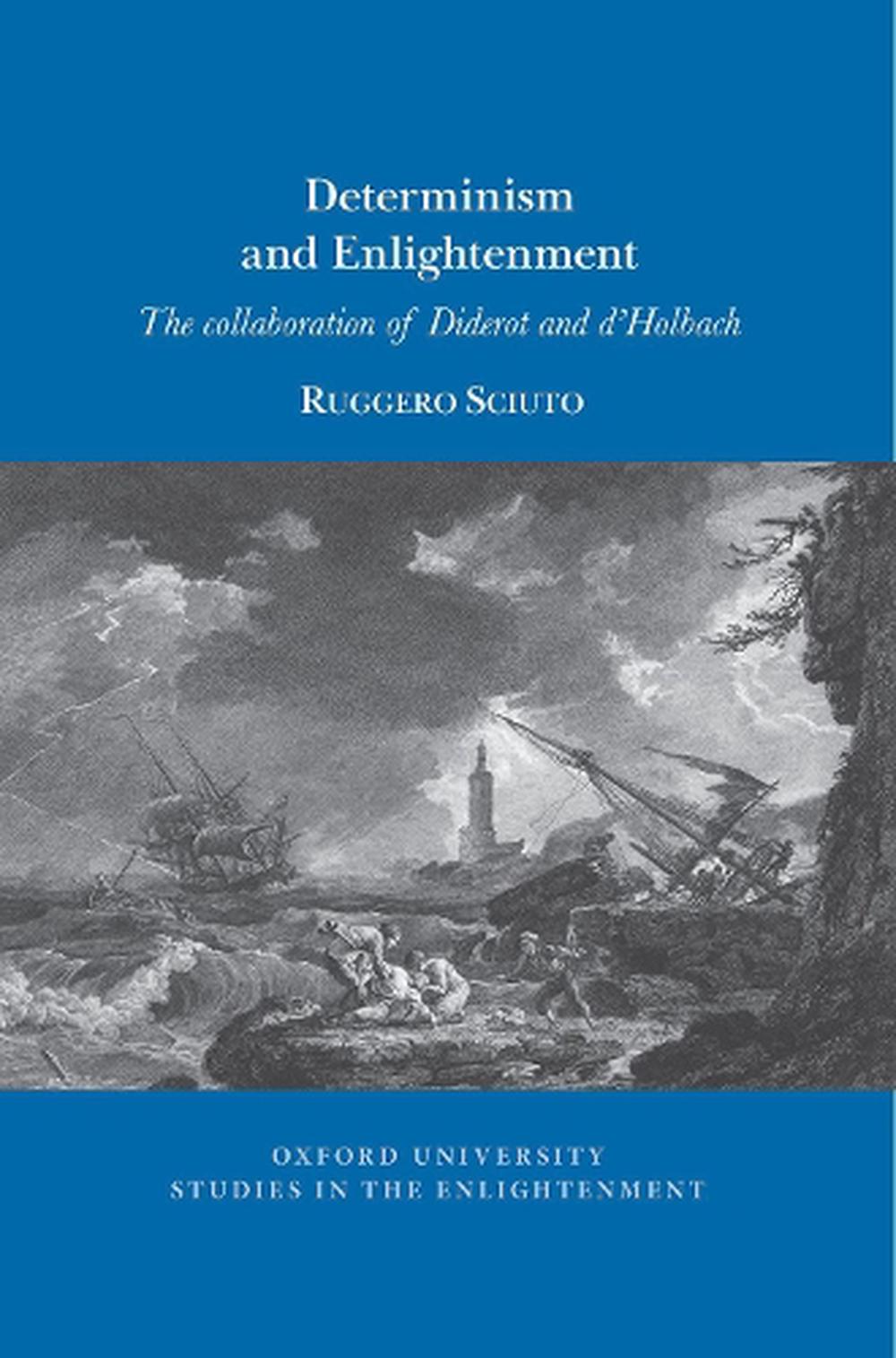
Determinism and Enlightenment
by Ruggero Sciuto
This book examines Diderot's and d'Holbach's views on determinism to illuminate some of the most important debates taking place in eighteenth-century Europe.
Paperback
English
Brand New
Publisher Description
This book examines Diderot's and d'Holbach's views on determinism to illuminate some of the most important debates taking place in eighteenth-century Europe. Insisting on aspects of Diderot's and d'Holbach's thought that, to date, have been given scant, if any, scholarly attention, it proposes to restore both thinkers to their rightful position in the history of philosophy. The book problematises Diderot's and d'Holbach's atheism by showing their philosophy to be deeply rooted in the Christian tradition and offers a more nuanced and historicised interpretation of the so-called "Radical Enlightenment", challenging the notions that this movement can be taken to be a perfectly coherent set of ideas and that it represents a complete break with "the old". By examining Diderot's and d'Holbach's works in tandem and without post-romantic assumptions about originality and single authorship, it argues that the two philosophers' texts should be taken as the product of a fascinating collaborative form of philosophical enquiry that perfectly reflects the sociable nature of intellectual production during the Enlightenment. The book further proposes a fresh interpretation of such crucial texts as the Système de la nature and Jacques le fataliste et son maître and unveils a key web of concepts that will help researchers to better understand Enlightenment philosophy and literature as a whole.
Author Biography
Ruggero Sciuto is a Leverhulme Early Career Researcher at St Edmund Hall, Oxford, where his research focuses on eighteenth-century French literature and philosophy as well as on early modern diplomacy. He is the director of Digital d'Holbach, a born-digital critical edition of d'Holbach's works, and a collaborator on the Oxford edition of Voltaire's Complete Works.
Table of Contents
List of Abbreviations
List of figuresAcknowledgmentsIntroduction1: One question, two thinkers1.1: Determinism1.2: Diderot1.3: D'Holbach2: Linking everything together2.1: Diderot and d'Holbach2.2: D'Holbach and determinism2.3: Diderot and determinism3: Synopsis3.1: Building blocks3.2: Of Individuals and Societies3.3: Determinism, complexity, and atheism4: Further aims of this book5: N.B.5.1: Determinism vs fatalism5.2: Corpora and chronologyChapter I: Three Fundamental Principles1: Background1.1: The Causal Principle1.2: The Causal Principle under attack1.3: The Principle of Sufficient Reason1.4: Causal Principle, Principle of Sufficient Reason, and Cosmological Argument1.5: Hume's criticisms of the Cosmological Argument1.6: The Nihil ex Nihilo Principle2: Diderot and d'Holbach2.1: Diderot, d'Holbach, and the Nihil ex Nihilo Principle2.2: Diderot, d'Holbach, and the Causal Principle2.3: For the sake of determinism and science2.4: Diderot, d'Holbach, and the Principle of Sufficient Reason2.5: Causa sive ratio2.6: Cause and reason in Diderot's and d'Holbach's writings2.7: Why do Diderot and d'Holbach endorse the Principle of Sufficient Reason?3: ConclusionChapter II: Causal Necessitation1: Background1.1: Causal Necessitation1.2: Causal and Logical Necessitation1.3: The argument from essence1.4: The argument from total cause1.5: No Necessary Connection Arguments2: Diderot and d'Holbach on Causal Necessitation2.1: Suites et effets nécessaires2.2: Additional evidence2.3: Causal Necessitation in the moral world2.4: Diderot and d'Holbach on the equivalence of Causal and Logical Necessitation2.5: D'Holbach and the argument from essence2.6: Diderot: the argument from essence and the argument from 'cause une'3: Causal Necessitation and theology3.1: The reasons behind it all4: ConclusionChapter III: Laws of Nature1: Background1.1: Laws of nature in eighteenth-century France1.2: The Top-Down View1.3: The Bottom-Up View1.4: Spinoza2: D'Holbach and the laws of nature2.1: D'Holbach and the Bottom-Up View2.2: D'Holbach and the Top-Down View2.3: D'Holbach's compromise3: Diderot and the laws of nature3.1: Two arguments against Diderot's belief in the laws of nature3.2: A glance at the texts3.3: Diderot and mathematics3.4: Diderot and the Bottom-Up View4: ConclusionChapter IV: Moral Freedom1: Background1.1: 'Liberté naturelle', 'liberté civile', and 'liberté politique'1.2: Moral freedom1.3: The Alternative Possibilities Model1.4: The Source Model1.5: Moral Freedom and determinism2: Diderot and d'Holbach on Moral Freedom2.1: Diderot and d'Holbach on the Source Model2.2: Internal and external causes2.3: External causes2.4: Internal causes2.5: Internal and external causes reconsidered2.6: Diderot and d'Holbach on the Alternative Possibilities Model2.7: Outright rejection of Moral Freedom2.8: Moral responsibility3: ConclusionChapter V: Individuals and Society1: A deterministic theory of human life1.1: Machines de chair1.2: Pensées décousues1.2: Dreaming1.3: Madness1.4: Scientific discoveries1.5: Artistic production1.6: Aesthetic experience2: No man is an island2.1: Love2.2: Machines d'hommes2.3: Causal Necessitation and Laws of Nature2.4: Of climate and rulers2.5: Social change in a deterministic worldConclusionChapter VI: Paradoxes of Determinism1: Determinism and complexity1.1: Diderot and complexity1.2: D'Holbach and complexity1.3: Against the Argument from Design1.4: Determinism vs complexity1.5: A complex theory of determinism2: Of Predictability, chance, (dis)order, and atheism2.1: Determinism and predictability2.2: Determinism and chance2.3: Determinism or (dis)order2.4: Diderot and d'Holbach's atheism reconsidered3. Jacques le fataliste et son maître3.1: Les chainons, le grand rouleau, et le dieu de Malebranche3.2: The mirage of freedom and the Leibnizian God3.3: Jacques, Hume, and superstitionConclusionConclusionBibliographyPre-1850 sourcesPost-1850 sources
Promotional
of concepts that will help researchers to better understand Enlightenment philosophy and literature as a whole.
Details

